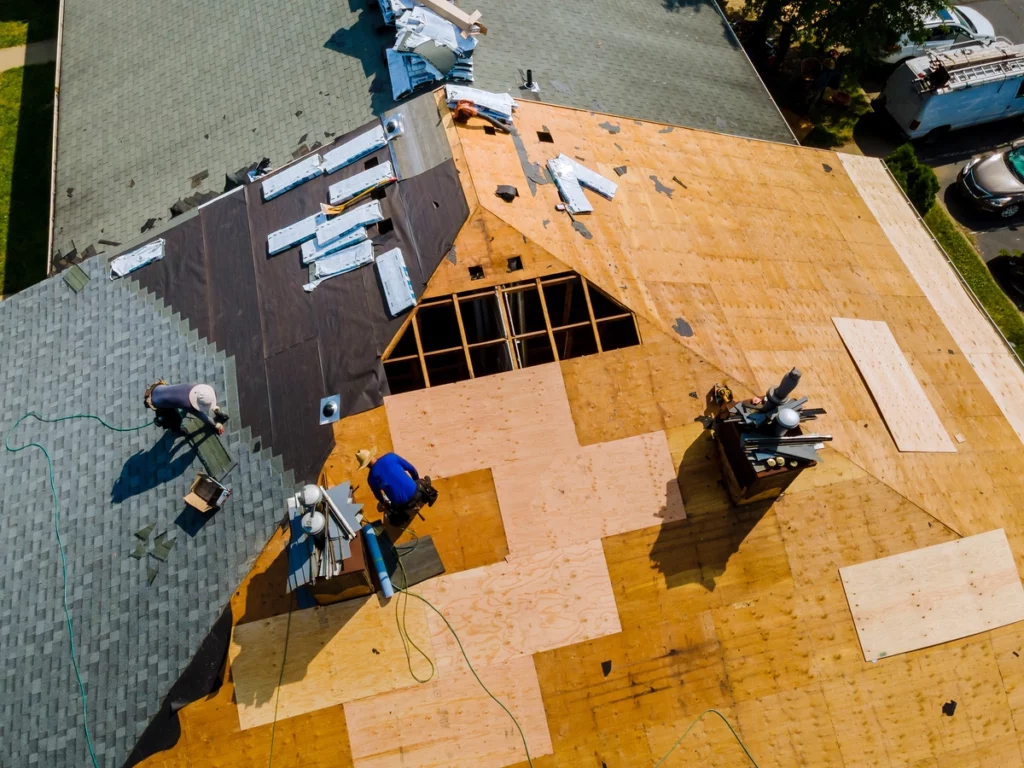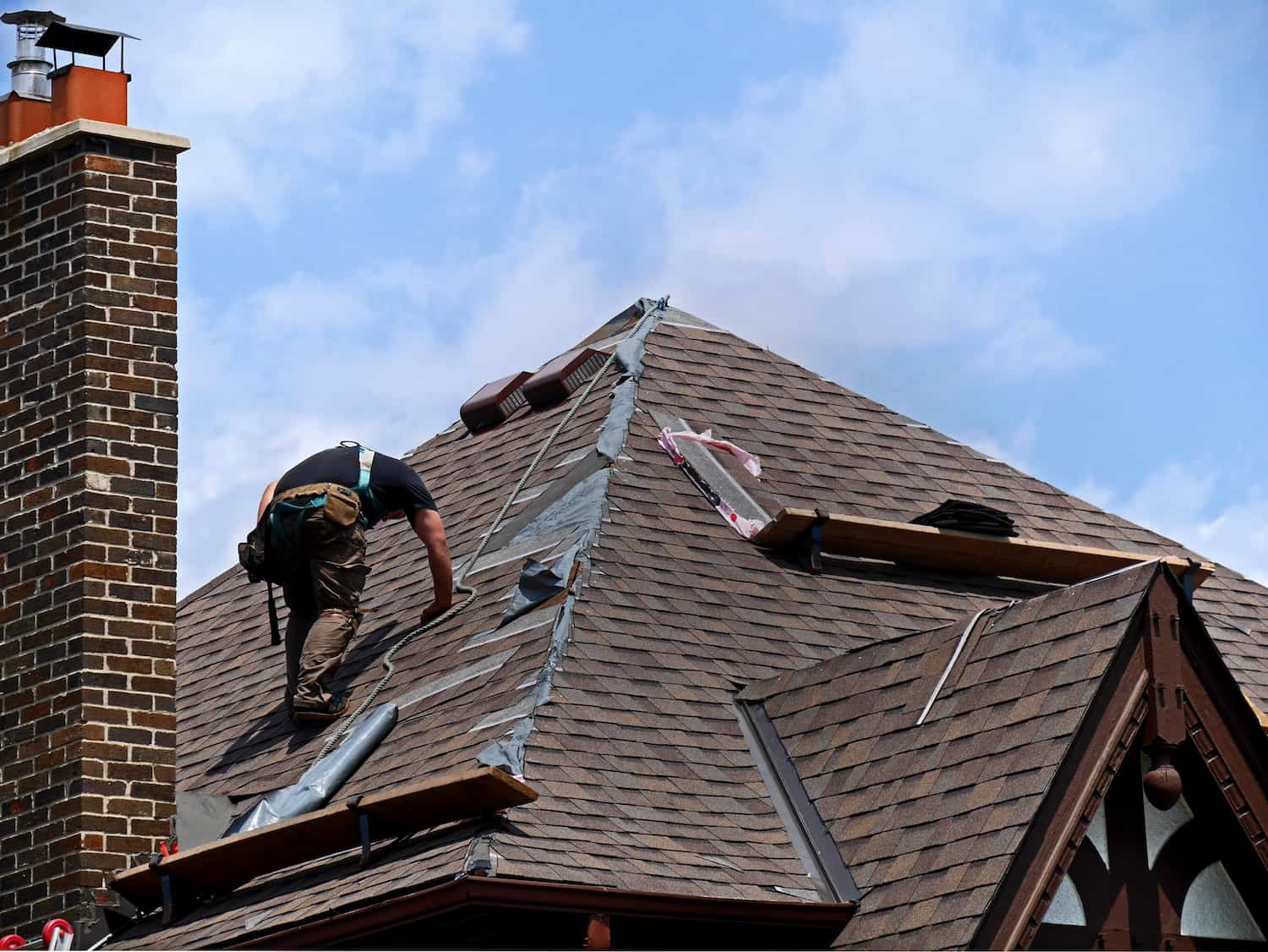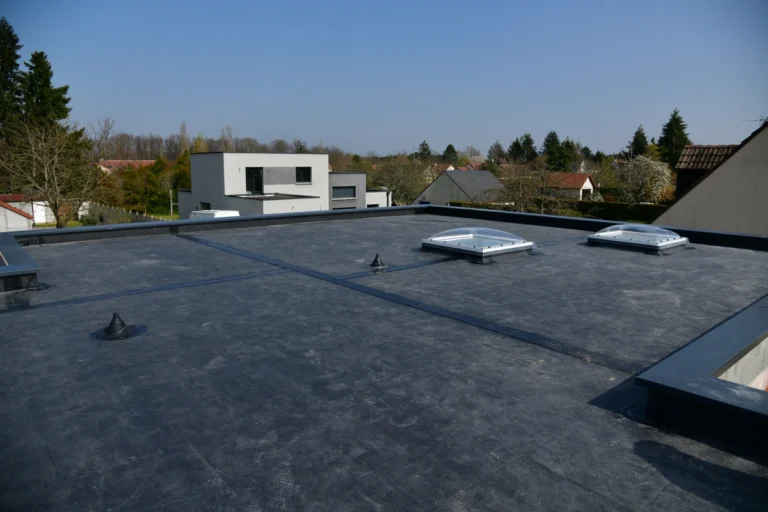We’re all guilty of taking our roofs for granted, but they’re sadly not built to last forever.
At some point, you may consider upgrading your roof to sell your home, or maybe you woke up the morning after a storm to some missing shingles from your roof. But that’s what we have insurance for, right?
Unfortunately, insurance won’t always pay up when you need a new roof.
So we’re going to help.
When your roof needs to be replaced, follow these steps to get insurance to pay for your roof replacement. You’ll be glad you did.
How Do You Know Your Roof Needs to Be Replaced?

Before you start the process of getting your insurance to cover a new roof, you need to make sure that you actually need a new roof. There are several factors that contribute to whether or not your roof needs replacing:
The Age of Your Roof: Most asphalt shingle roofs last about 20-25 years. If your roof is approaching or has surpassed this age, it’s more likely that you’ll need to replace it soon.
The Type of Roof You Have: Some types of roofs, like metal roofs, can last up to 50 years. If you have a metal roof, chances are you won’t need to replace it anytime soon. But if you have an asphalt shingle roof, 20-25 years is about the average lifespan.
The Condition of Your Roof: Even if your roof is relatively new, the condition of your roof can contribute to whether or not you need a new one. If you’ve noticed any of the following, it’s time to have your roof inspected by a professional:
- Water damage in the attic
- Parts of the roof are sagging
- There’s excessive moss, mold, or algae growth
- Multiple shingles are curling, buckling, missing, loose
- Your roof has reached or surpassed its intended lifespan
- Missing flashing, gutters, fascia, etc.
- Your heating or cooling bills are consistently high
- You get recurrent ice dams every winter
So, if you’ve determined that you need a new roof, it’s time to start the process of getting your insurance to pay for it.
How to Get Insurance to Pay for a Roof Replacement
1) Review Your Homeowner’s Insurance Policy

First, you should closely read through your insurance policy to find the part about roof coverage, or general damage coverage. Most insurance policies will cover any roof damage caused by the following:
- Fire
- Lightning
- Hail
- Wind
- Hurricanes
However, things like neglecting repairs and maintenance or water damage due to a burst pipe may not be covered, and you might struggle to get a new roof paid for. So knowing your policy well before filing a claim or talking to a contractor can be a huge leg up.
2) Document Any Suspected Roof Damage
If you think your roof has experienced enough storm damage to warrant a replacement, document as much of the damage as it is safe to do so. This way, you have evidence for your insurance company when you file your claim.
- Start by taking pictures or videos of any visible damage from the ground with a clear view of the roof. If possible, take close-ups as well as wide shots.
- Take pictures of the surrounding area for reference, like a landmark or street sign.
- If it’s safe and you have access to a ladder, take more pictures or videos of the damage from up on the roof. If any shingles are missing, dents, cracks, or holes, make sure to document all of them.

3) Find a Reputable Roofing Company to Inspect and Replace Your Roof
Once you’ve documented the damage, it’s time to call in the professionals. Find a reputable roofing contractor in your area to come and inspect your roof.
When meeting with the contractor, be sure to:
- Get a thorough inspection and detailed estimate of the cost
- Ask about any damage that wasn’t visible from the ground
- Find out if your roof can be repaired or if it needs to be replaced
- Get a timeline for when the repairs or replacement can be done
4) Avoid Storm Chasers and Roofing Scams
In the wake of a major storm, there will inevitably be “storm chasers” going door to door, offering their services to repair or replace your roof.
These contractors are often unlicensed, uninsured, and inexperienced. They may do a shoddy job or take your money without completing any work. And if something goes wrong, you’ll have no recourse. To help avoid this, do your research before hiring any roofing contractor. Check online reviews, get multiple bids, and only hire a contractor that is local, licensed, and insured.
5) File an Insurance Claim

Once you’ve found a reputable contractor, it’s time to file your insurance roofing claim. Your roofing contractor should be able to help you with this process and answer any questions you may have.
- To start, you’ll need to gather all of your documentation, like the estimate, pictures, and videos from the inspection.
- You’ll also need your policy information.
- Then, you’ll need to contact your insurance company and file a claim.
- The insurance company will then send an adjuster to inspect the damage and determine how much they’re willing to pay.
- Once you’ve received the inspection report, you can proceed with repairs or replacement
Ready for Your Roof Replacement? We Can Help
When you need your roof replaced, make the smart (and easy) choice and work with Clean Cut Roofing. For over 15 years, homeowners have chosen Clean Cut Roofing to inspect, repair, and replace their roofs.
Our custom solutions include roofing materials like shingles and metal roofing, and both are built to endure all that Texas weather throws their way.
From inspection to follow-up maintenance, we are focused on continued excellence by staying up to date on industry-leading techniques, educating our in-house team, and offering the best financing options to qualified homeowners.
To get started on your roof replacement, reach out to us today!



